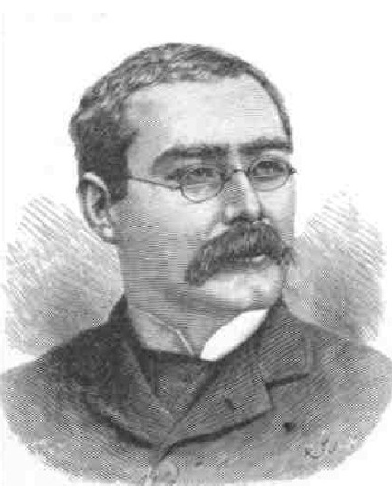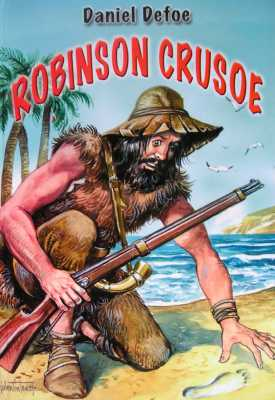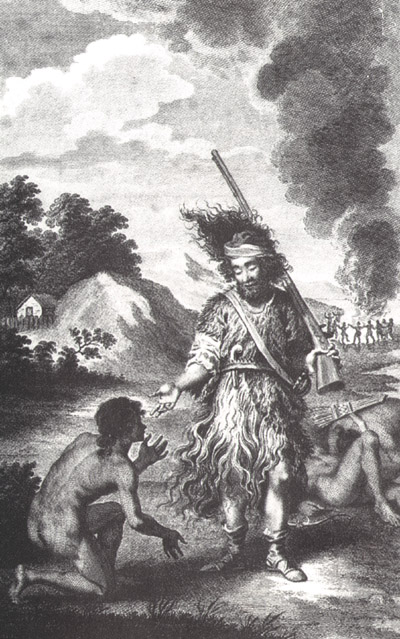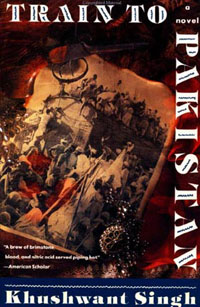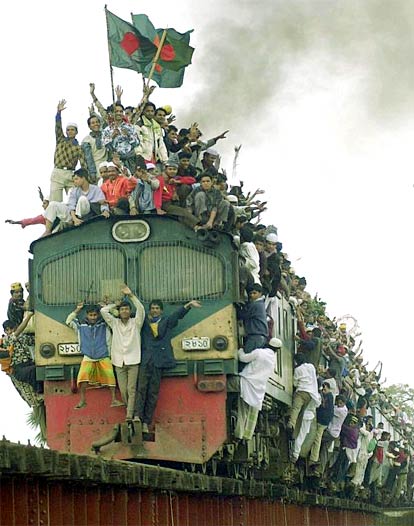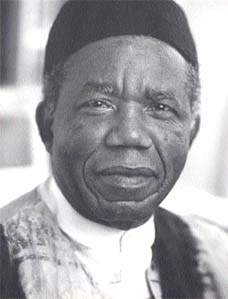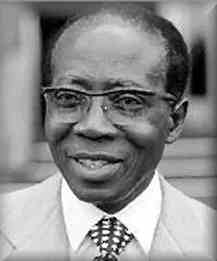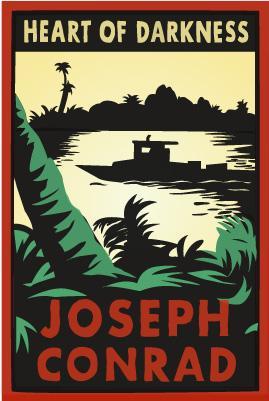|
|
|
|
Homepage & Syllabus LITR 5831 World Literature: Colonial-Postcolonial (formerly listed as LITR 5734 or 5731; cross-listed with CRCL 5734 Cross-Cultural Texts in Dialogue) Fall 2013 * Monday 4-6:50pm * Bayou 2104 Instructor: Craig White Office:
Bayou 2529-7
Related course at prison campus to be offered at UHCL spring 2016: LITR 5731 Multicultural Literature: Tragedy & Africa UHCL Student Research Conference Attendance policy: You are expected to attend every scheduled class meeting but are permitted one free cut without comment or penalty. More than one absence jeopardizes your status in the course. If you continue to cut or miss, drop the course. Even with medical or other emergency excuses, high numbers of absences or partial absences will result in a lower or failing course grade. |
Assignments
Presentations (overall +
index) Midterm (20-30%; due 30 Sept.-8 Oct.)
Research Options Final Exam (3-10 December)
|
Brief Course Overview
An emerging field in world literature—
Classical texts of First-World colonialism
are read in dialogue with
Postcolonial texts from the Developing World
![]()
|
The
CARIBBEAN (a.k.a. West Indies or New World)  |
Daniel Defoe Adventures of
Robinson Crusoe (1719) Jamaica Kincaid & Lucy (1990)
|
|
Rudyard Kipling The Man Who Would Be King (1888) & Gunga Din (1892) in dialogue with Khushwant Singh’s Train to Pakistan (1956) & Bharati Mukherjee's Jasmine (1989) |
INDIA (or the Indian Subcontinent) 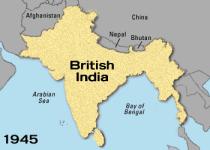 maps of India |
![]()
|
AFRICA |
Chinua Achebe Things Fall Apart (1958) in dialogue with Joseph Conrad Heart of Darkness (1902) & Achebe, "An Image of Africa: Racism in Conrad's Heart of Darkness" |
+ selected poems, articles, handouts and selections from
The Post-Colonial Studies Reader
—see schedule below
![]()
Terms and Objectives
Most US readers are schooled in reading national literatures (American literature, English literature) or occasionally World Literature as "Great Books" of Western Civilization (with occasional visits to non-Western sources like Confucius, Gilgamesh, etc.).
Therefore international terms for World Literature like colonialism and postcolonialism may be unfamiliar.
-
Unfamiliarity rises partly from postcolonial studies' rise in British Commonwealth or French and other former European colonies.
-
Americans may resist thinking in postcolonial terms because many resist regarding the United States as an empire or an imperial nation, preferring instead to emphasize the USA's origins as thirteen colonies throwing off the British Empire.
-
Post-structuralism emerged simultaneously with postcolonialism, contributing to shifting terms or unfamiliar interpretive strategies.
-
In contrast to the plain style of Anglo-American scholarship and fiction, postcolonial criticism and fiction may perform extravagantly or confrontationally, sometimes flouting but other times imitating the neutral style affected by imperial cultures.
(Course objectives 1-3 = primary objectives for seminar discussions and exams)
1. To bring classic literature of European colonialism and emerging literature from the postcolonial world into dialogue—either conscious debates between authors or exchanges arranged by later readers, or dialogues between colonizing and colonized characters in a single text.
-
Essential theoretical terms: Intertextuality and Historicism.
1a. To mediate the “culture wars” between the “old canon” of Western classics and the “new canon” of multicultural literature by studying them together rather than separately.
1b.
To extend the colonial-postcolonial transition to a
contemporary third wave of
transnational migration.
Alternative terms: post-national, post-race, post-modern.
![]()
2. To theorize the novel as the defining genre of modernity, both for colonial and postcolonial cultures.
2a. By definition, the genre of the novel combines fundamental representational modes of narrative and dialogue.
-
dialogue as formal but humanizing encounter of self & other
-
narrative as personal and cultural trajectory, direction, or history
-
Can Colonizers be understood as other than villains? Must the Colonized be cast as victims? Does dehumanizing the other automatically dehumanize the self, or may it be liberating? (Moral opposition increases drama, but moral relativism cultivates relations.)
-
Can literary fiction instruct students’ knowledge of world history and international relations? Compared to nonfictional discourses of history, political science, anthropology, economics, etc., how may colonial & postcolonial fiction help more people learn world history, contemporary events, and the global future?
2b. To extend genre studies to poetry and film
(esp. Derek Walcott of St. Lucia, West
Indies [b. 1930; Nobel Prize for Literature, 1992]).
![]()
3. To account for Americans’ difficulties with colonial and postcolonial discourse.
3a. Is America (USA) an imperial, colonial, or neo-imperial nation? Or an “empire in denial?”
-
Compare and contrast "settler" and "non-settler" colonization
-
settler colonies: USA, Canada, Australia, South Africa, Israel
-
non-settler colonies: India, Pakistan, Kenya, Nigeria, Hong Kong, Philippines
-
in-betweens: Latin American countries like Mexico
-
-
USA as last “superpower”: resemblances to and differences from previous empires like Rome and England.
-
Issues of American ignorance of larger world and alternative worldviews
3b. Does American resistance to or ignorance of postcolonial criticism react to this discourse’s development from outposts of the former British Empire and French / Francophone traditions?
3c.
How may colonial-postcolonial discourse fit into American nationalist and
multicultural curricula? If this is your only colonial-postcolonial course, how
may it serve your scholarly or teaching interests?
![]()
(Secondary Objectives)
4. To
observe representations or repressions of gender in male-dominant fields of cross-cultural contact.
![]()
5.
Periods & movements:
tradition and modernity;
colonialism, postcolonialism,
and postmodernism. (The latter
two co-emerge in
later twentieth century with some shared styles.)
![]()
6. To develop environmental thinking: demographics, population dynamics (esp. Demographic Transition), immigration, climate change, and other global environmental issues often occur in terms of developed and undeveloped nations, or modernization.
+ issues
of "space & place": Compared to
traditional cultures of the “Third World,”
modern cultures of “global culture” or the “First World” usually have little
attachment to particular places. Sense of “place” or “rootedness” gives way to
abstract space: modern airports, hotels, or malls.
![]()
7. To register the persistence of millennial or apocalyptic narratives, symbols, and themes as a means of describing the colonial-postcolonial encounter.
7a. Two prevailing narratives of modernization: Oedipal conflict and millennialism (as reaction to creative destruction)
8. Morality or ethical issues: How reconcile that people like ourselves
advancing
Western Civilization have acted (or written) inhumanely toward others?
![]()
![]()
Reading & Presentation Schedule,
fall 2013
[fall 2015 schedule will be updated before classes
begin, but mostly same]
![]()
|
Colonial World Map + Ferguson, Colossus |
Agenda:
canon |
|
|
Discussion Questions: 1. What knowledge of World Literature? Empires? 2. Are terms of "colonial & postcolonial literature" familiar? How? Where? What texts? 3. If this field of study remains recent and little-known in the USA, what motivations are there to learn it? What resistance? 4. Our colonial literature (like Kipling's poem or Robinson Crusoe) is mostly written by classic writers who are invaluable to European-American literary traditions. How (or should) we avoid setting up them or their attitudes as villains in a grand moral drama? That will be our natural response, but how or why should we question it? What other options? 5. What pre-knowledge of Robinson Crusoe? What surprises in store? (Novel) "Shooting an Elephant"? |
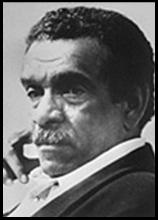 Derek Walcott (b. 1930) |
![]()
Monday, 2 September: No class meeting: Labor Day holiday
![]()
|
Reading Assignment: Robinson Crusoe chapters 1-4 (up to "The Journal") (Index to Crusoe readings—read another edition if preferred.) George Orwell, "Shooting an Elephant" (1936) Student presentations Poetry reading: Claude McKay, "Enslaved" + Derek Walcott, “Crusoe’s Island” Poetry reader: Jacob McCleese Web Review: Emory University: Introduction to Postcolonial Studies Web presenter: Lori Arnold optional readings: selections from Ian Watt, “’Robinson Crusoe,’ Individualism, and the Novel” Tzvetan Todorov, The Conquest of America: The Question of the Other (1982, 1984) |
Agenda: obj. 1 Assignments incl. White Teeth, midterm web: Lori presentation assignments [break] discussion Crusoe (instructor) What surprising? realism 3.40, 3.50 poems: Jacob |
|
|
Discussion questions: 1. Why do we already know the story of Crusoe whether we read the novel or not? What surprises upon reading? (2.7, 3.24, 3.28) If this is your first reading, what was surprising? 2. What attitudes does Crusoe show toward home, family, career? What generational issues? How are these modern or traditional? > objective 8a. Two prevailing narratives of modernization: Oedipal conflict and millennialism. 3. How does Crusoe's individual life correspond to England's history as an imperial-colonial nation? 4. If Crusoe is "the first English novel," how does it exemplify the genre or leave your expectations frustrated? How is the novel both romantic and realistic? 5. Dialogue / intertext Crusoe with Orwell's "Elephant": how are both colonial writings, but how does Orwell's text appear more modern, almost postcolonial? |
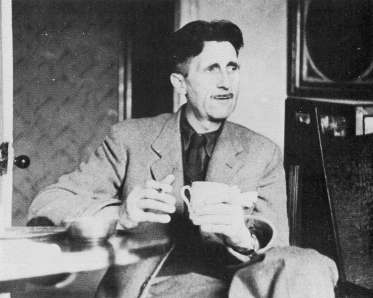 George Orwell (1903-1950) |
![]()
|
Reading Assignment: Robinson Crusoe chapters 11-18 (Index to Robinson Crusoe readings—read another edition if you prefer.) Jamaica Kincaid’s A Small Place (selections; handout) Student presentations Discussion leader (dialogue between A Small Place & Crusoe?): Jenna Zucha Film / video highlight: White Teeth, part one (tape or DVD available from instructor): Masterpiece Theater site Presenter: Lori Arnold |
Agenda: novel as form: genres; novel assignments discussion: Jenna literary pleasures, problems w/ Crusoe or Kincaid? periods realism, reason and technology (Todorov 158-60) film: Lori terms: self-other, modern / traditional, Manichaeism, millennialism ch 6; inter-racial buddy teams; Adam Smith; Protestant Work Ethic |
|
|
Discussion Questions: Obj. 2. To theorize the novel as the defining genre of modernity, both for colonial and postcolonial cultures. (dialogue ch. 15) 1. Crusoe: In what ways do Crusoe and Friday exemplify "self and other" in the Colonial-Postcolonial dialogue? How may an equalizing, humanizing dialogue begin? How does the speech or power of the colonized (Friday) threaten to escape the power of the colonizer (Crusoe)? Extend to A Small Place. 2. What is Friday's ethnicity in Robinson Crusoe and in popular culture? (ch. 14) Not to defend cannibalism, but what does it signify to Crusoe so that he obsesses over it? (ch. 12) What "primitive" buttons does cannibalism push? 3. Look for millennialism in both texts? Discuss also Crusoe's conversion—what validity and what misgivings? Compare to attitudes toward father. Review discussion of Puritanism & secular individualism and capitalism in selections from Ian Watt, “’Robinson Crusoe,’ Individualism, and the Novel.” See also Adam Smith, selections from The Wealth of Nations (1776) ("Providence" as "invisible hand") 4. How does reading Kincaid's A Small Place intertextually with Robinson Crusoe change your reading of either or both? |
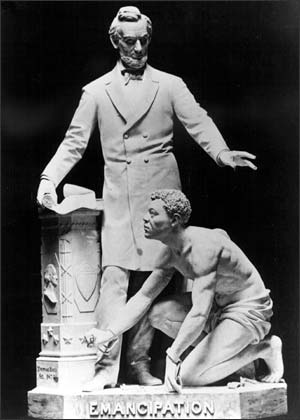 Lincoln and slave |
![]()
|
Reading Assignment: Jamaica Kincaid, Lucy (1-132; up to chapter titled "Lucy") Student presentations
Discussion leader:
Marichia Wyatt Instructor previews: Paul Gauguin, artist referred to in Lucy, p. 95 + question Poetry reading: William Wordsworth, "I Wandered Lonely as a Cloud" (+ Lucy, pp. 17-19, 29-30): How does the poem change if read in dialogue w/ Lucy? Poetry reader: Lori Arnold
notes from Paul Gilroy,
The
Black
|
Agenda: Assignments, midterm updates discussion: Marichia Kincaid's style; millennialism 8, 72; Crusoe ch. 6
[break] Model Assignments / midterm poetry: Lori Kincaid's Annie John & "Columbus in Chains"
|
|
|
Discussion Questions: Obj. 2. To theorize the novel as the defining genre of modernity, both for colonial and postcolonial cultures. 1. Where does this text fit in Colonialism > Postcolonialism > Transnational Migration? If Lucy is an immigrant story, what does she see about the 1st world? 60-1 2. What role or identity for 1st world after colonialism? How is Mariah represented in these terms? How may Lewis be neo-colonial? 73 3. Criticize Jamaica Kincaid: identify nature of style; what attractions, downsides? 4. Crusoe says his "original sin" was not being satisfied with his station in life. Historians identify the New World's original sins as dispossession of the Indians and enslavement of Africans. How does Lucy represent and remember these original sins? 5. If Crusoe planted a "second Eden," how does Lucy as Lucifer change that Eden? 6. How does Lucy's status as a woman (along w/ Kincaid's) change the sexual dynamics of the self-other encounter? Contrast Inter-racial Buddies (all-male). |
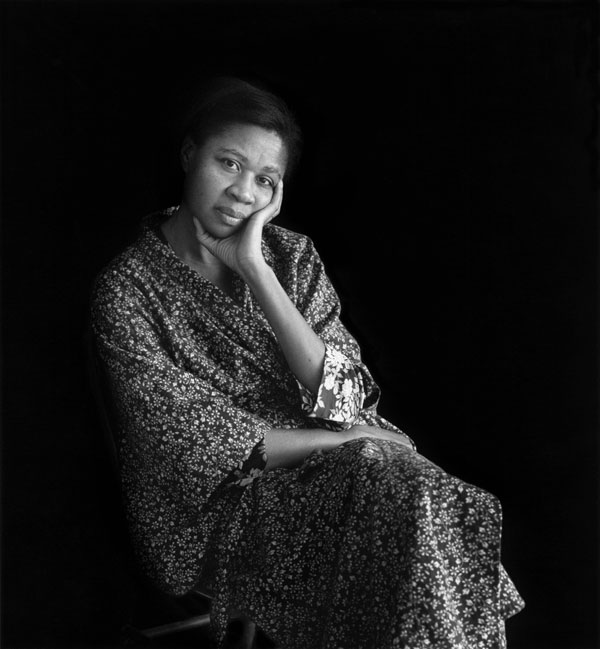 Jamaica Kincaid (b. 1949) |
![]()
|
Monday, 30 September + instructor's notes for Man . . . King Reading Assignment: Lucy (complete) & Rudyard Kipling, The Man Who Would Be King & Gunga Din (1892) Student presentations Discussion leader (Lucy &/or The Man Who Would Be King): Lori Arnold Video highlights: The Man Who Would be King (1975) Presenter: Gregory Buchanan instructor previews partition of India partition of India visuals (no sound) partition of India & Pakistan in color (Nehru, Mountbatten, Punjab region > continuing international tensions resulting from colonization & decolonization) |
Agenda:
1st half of class:
MidtermDiscussion leader (Man
+ Lucy):
Lori
Film highlight:
Man Who Would
be King Presenter:
Gregory 2nd half of class: maps of India / Indian Subcontinent assignments + presentations Objective 2; instructor previews partition of India |
|
|
Discussion Questions: 1. Continue dialogue between Crusoe and Lucy? Extend to Man . . . King? 2. Continue Lucy as Lucifer—compare to Friday? 3. How coordinate Lucy's family drama to colonial-postcolonial? 4. Man Who Would be King: How does the story typify colonial attitudes but also offer surprises in relations b/w colonizer and colonized? 5. Compare to Robinson Crusoe in novelistic style and relations of colonizer-colonized? Role of technology (esp. guns)? 6. The mystique of the British Empire remains powerful for its former colonies. How does this mystique express or reveal itself in Man . . . King? Compare & contrast Lucy & A Small Place. 7. What use to colonial-postcolonial studies of the "white tribe" of Er-heb besides obvious racism? What mistakes does Daniel make following from his assumptions about whiteness? 8. As ever, gender becomes entangled with racism in cross-cultural studies. How are women regarded in this and other colonial texts? |
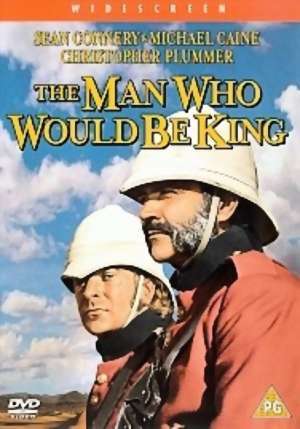 |
![]()
Monday, 7 October: midterm; no class meeting—instructor available in office during class hours (and beyond).
![]()
|
Reading Assignment: Train to Pakistan through page 116 (through Kalyug chapter, up to Mano Majra chapter) Train to Pakistan reading guide Student presentations Discussion leader: instructor Web Review: Rumi (poetry) Web presenter: Jenna Zucha Web Review: (instructor) 1947: Partition of India + Punjab + Sikhs (or sources on this page); Train to Pakistan 2007: Decolonization, Partition, and Identity in the Transnational Public Sphere (ch. 1 of Kavita Daiya, Violent Belongings: Partition, Gender, and National Culture in Postcolonial India. Philadelphia: Temple UP, 2008.) Pather Panchali |
Agenda: assignments, presenter? research schedule web: Jenna Discuss: Obj. 2a: fiction to learn history 71 Tagore; Baul Minstrels; Tagore song Kincaid; millennialism 8, 72; Crusoe ch. 6; Train 1, 5, 40, 77 Demographic Transition 169; shame / honor & guilt / pride The Bechdel Test 129 |
|
|
Discussion Questions: Overall, keep up with questions about ethnic groups, identities, markers--some review available. 1. Review Obj. 2a: Can literary fiction instruct students’ knowledge of world history and international relations? Compared to nonfictional discourses of history, political science, anthropology, economics, etc., how may colonial & postcolonial fiction help more people learn world history, contemporary events, and the global future? 2. Train to Pakistan is our one novel to depict the moment of decolonization or independence: How is the event depicted? Positively, India and Pakistan become nations, but what earlier world is threatened or lost? (Consider objective 7 on millennialism.) 2a. How may the transition between two worlds be a change from a traditional to a modern culture? Consider gender, community, family, ethnicity, nationhood. 3. Re Obj. 2 on the novel: In multicultural India, how many voices can a novel manage? What other novelistic dimensions? 4. How does Singh succeed (or not) in representing great historical change as moving personal fiction?
|
 |
![]()
Sunday, 27 October: First Research Post due (or before)
![]()
|
Reading Assignment: complete Train to Pakistan (through p. 181) Train to Pakistan reading guide Student presentations Discussion leader: Kristine Vermillion Poetry reading: Walt Whitman, "Passage to India" reader: Gregory Buchanan |
Agenda: assignments; transnational migration discussion: Kristine [break] "India"; the subcontinent poetry: Gregory research librarian Casey Roberson |
|
Discussion Questions: 1. (Obj. 2) Continue to discuss the novel as the defining genre of modernity, both for colonial and postcolonial cultures. (obj. 2) 2. (Obj. 2) How does Train to Pakistan make you care about a historical event that many of us never heard of before? 2a. Our course's texts abound in outrages and atrocities. Reading a text like Train to Pakistan, what do we learn about how historical horrors occur? What opportunities are seen to counter them? 3 What is the novelistic and historical purpose or outcome of Nooran & Jugga's love? Compare / contrast with Iqbal, Partition. (Nigeria) 4. Why the confusion over Iqbal's identity and ethnic heritage? > extend to Jugga and Nooran + child. What distinct roles do Jugga and Iqbal play? 5. Hukum Chand isn't a pleasant character but he may be enigmatically heroic--is he? 6. Look for references to America (obj. 3). pp. 2, 18, 35, 142, 148 |
 10 Sikh Gurus |
![]()
|
Reading Assignment: Bharati Mukherjee, Jasmine, through chapter 17 (p. 121 in Grove edition) Images of Kali & other Hindu divinities mentioned in Jasmine Student presentations Discussion leader: Jacob McCleese Video highlights: Rabbit-Proof Fence Presenter: Jenna Zucha |
Agenda: research posts obj. 2a: History through fiction? What if you read Jasmine outside our context? discussion: Jacob [break] film: continue Jasmine: cf Lucy style, subject matter Postcolonial studies > transnational third stage or synthesis? Assignments |
|
Yama (Tibet, 16c); |
Background: Jasmine begins in postcolonial India near the time of partition, perhaps in the Punjab area. Sikh terrorists (known here mostly as the Khalsa Lions) are seeking an independent Sikh state. After her marriage is destroyed, the heroine becomes a transnational migrant moving through the dangers of the Third World before arriving in the USA: first Florida to be helped by a mainline Christian missionary; then New York City in an Indian enclave and later as a nanny like Lucy, then to the Midwest. The heroine changes her name with every new identity. Mukherjee is brilliant at keeping up the pace of both economic and cultural dislocation of American life--enjoy the ride! Discussion Questions: 1. Objective 4 on gender; tradition / modernity; what has changed about the novel? 2. What's extraordinary about Mukherjee's voice as an immigrant is how much she admires, endorses, and even models America's modernity—How to respond? 3. How does the protagonist embody the "transnational migrant" as a 3rd phase of colonialism / postcolonialism? |
 Kali Train Pakistan 40 Kalyug, the dark age Jasmine 52 Kali Yuga |
![]()
|
Reading Assignment: complete Mukherjee, Jasmine, through chapter 26 (p. 241 in Grove edition) "Passage from India" article regarding potential 4th wave of colonialism / immigration Student presentations Discussion leader on Jasmine plus or minus "Passage" article: Valerie Mead Poetry reading: Derek Walcott, “A Far Cry from Africa” reader: Kristine Vermillion Web/Film Review: Brief History of European Colonization in Africa; Wind of Change presenter: instructor instructor: Colonial & Postcolonial Nigeria |
Agenda: research schedule, etc. 1st half of class: Discussion on Jasmine, "Passage": Valerie [break] assignments / Nigeria poetry reader: Kristine videos |
|
|
Discussion Questions: 1. USA as hypermodernity: creative destruction of community > celebration of triumphant individual self. Is it liberating or scary? 2. The end of Jasmine may be mildly disturbing. What novelistic conventions or expectations does it challenge? Is a new narrative developing? Does it describe a new American or planetary experience? 2a. Seeing the "old story" escaped or broken is somewhat exciting, but does any satisfying new story emerge? (Expected ending is sentimental?)
|
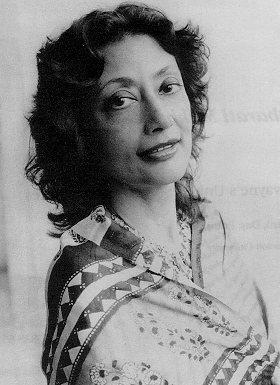 Bharati Mukherjee, b. 1940 |
![]()
|
Reading Assignment: 1st half of Things Fall Apart New York Times obituary for Chinua Achebe, 1930-2013; article on wife-beating in Africa Chinua Achebe, "Named for Victoria, Queen of England" (handout / PDF) Student presentations Discussion leader: Oyinna Ogbonna Poetry reading: W. B. Yeats, “The Second Coming” (relate to Things Fall Apart & Obj. 7 re millennialism) reader: Valerie Mead |
Agenda: web/film Nigeria Discussion: Oyinna spoken & written culture > novel Poetry: Valerie assignments, schedule, final exam |
|
|
Discussion Questions: 1. Things Fall Apart is taught in high schools and colleges across the United States. If someone has read only one novel written by an African, that novel is usually Things Fall Apart. How many of you read it before? For which courses? What lessons, themes, emphases? 2. In the colonization-independence-postcolonial sequence, when does this story occur? (pre-colonial?) 3. How do missionaries represent different aspects of colonialism? How are monotheism and modern-global culture compatible? 4. What about African people qualifies as “traditional?" What attractions and risks to tradition? e.g. What ranges to women's status in traditional societies? 5. How does the novel mediate b/w a western reader and honest representation of Africa? 6. How does the novel achieve tragic depth or texture instead of just National Geographic picturesque? 7. Traditional culture as gendered culture? 13, 23, 64, 109-10
|
 Nigeria in Africa |
![]()
|
Reading Assignment: Complete Things Fall Apart Talking their Way out of a Population Crisis; More Africans Enter U.S. Than in Days of Slavery; Review of Short Stories by African Immigrant to USA Discussion leader (Things Fall Apart +- any articles linked above): Jacob McCleese Poetry reading: Leopold Sedar Senghor, from A Prayer for Peace (Leopold Senghor & negritude; Kenya) reader: Instructor previews Frantz Fanon; Algeria; Martinique |
Agenda: Doris Lessing, South Africa; schedule, assignments + Apoc Now prsn Discussion: Jacob question re Things Fall Apart & Tragedy; Aristotle's Poetics LITR 5731 Multicultural Literature: Tragedy & Africa [break] poetry, negritude + Fanon |
|
|
Discussion Questions: 1. How does novel mediate b/w western reader and honest representation of Africa? 2. Distinguish the narrator's voice from those of the characters. (obj. 2a re narrative and dialogue) 3. How does the novel achieve tragic depth or texture instead of just National Geographic picturesque? 4. How may Things Fall Apart resemble a western Tragedy? 5. How regard progress of colonization? 155, 174, 178 Modernity / tradition 124, 187, 203; 143 [revolutionary religion]; 144 not my father; 145 all sons of God; 147 [new religion answers Nwoye's questions]--cf 62; 148 [Nwoye] already beginning to learn some of the simple stories they told; 152 school = read & write; forsakes parents = blessed; 207-8 |
 Nigeria |
![]()
Sunday, 24 November: Second Research Posts or Research Projects due (or before)
![]()
|
Reading Assignment: Heart of Darkness (instructor's introduction & part 1) Achebe, "An Image of Africa: Racism in Conrad's Heart of Darkness" (optional—report by African American reporter in Congo near time of Conrad's journey) George Washington Williams, “An Open Letter to His Serene Majesty Leopold II, King of the Belgians and Sovereign of the Independent State of Congo . . . " (1890) Student presentations Discussion leader(s): Valerie Mead Video highlights: Apocalypse Now Presenter: Marichia Wyatt (+- Jacob McCleese) Instructor's presentation: Graham Greene, The Quiet American |
Agenda: research projects, grading schedule UHCL Student Research Conference George Washington Williams discusssion: Valerie Apocalypse Now: Marichia, Jacob? Graham Greene
|
|
|
Discussion Questions for both meetings on Heart of Darkness: 1. What knowledge of Conrad (1857-1924)? What read? Subject matter? (Unique biographical facts: English Conrad's 3rd language [Polish > French > English]; merchant mariner for 20 years) 2. from Obj. 2a: Can Colonizers be understood as other than villains? Does dehumanizing the other automatically dehumanize the oppressor? (Moral opposition increases drama, but moral relativism cultivates relations.) After Postcolonial Studies, and especially in light of Achebe's article on "Racism in Heart of Darkness," is Conrad's novel worth reading? With what qualifications or authority? What are our options? 3. How does a novel succeed (or not) in humanizing its subjects? 4. Obj. 2 on the novel: How does Heart of Darkness exemplify Modernist fiction? (Compare Faulkner, Joyce, Woolf; contrast with Achebe?) 5. gender: how much does Conrad's Modernist view remain gendered, comparable to African traditional culture? 2.50-1, 2.68, 2.71, 2.110
|
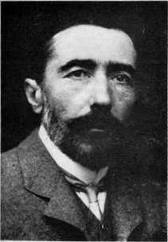 Joseph Conrad (1857-1924) |
![]()
|
Reading Assignment: Heart of Darkness (part 2) Achebe, "An Image of Africa: Racism in Conrad's Heart of Darkness" optional reading: Craig White, "American or Postcolonial Studies? On the Frontiers of Colony and Empire with The Last of the Mohicans and Heart of Darkness" Student presentations Discussion leader(s): Oyinna Ogbinna Poetry reading: Walcott, "The Season of Phantasmal Peace"; reader: Marichia Wyatt |
Agenda: previous syllabi, final exams discussion: Oyinna [break + evaluations] Impressionism, Modernism + Ngugi wa Thiong'o; Text guide: A Grain of Wheat poetry: Marichia |
![]()
Monday, 9 December: final exam
- Write exam in-class
during final exam period (7-9:50, Thursday 9 December 2009)
OR - Write and send by email using 3-4 hours anytime after 2 December—deadline is Tuesday 10 December

Earlier Syllabi
Isaac Chotiner, "After Sunset" New York Times Book Review, 2 March 2012; Review of Kwasi Karteng, Ghosts of Empire: Britain's Legacies in the Modern World (2012)
"Peacocks at Sunset" re India-Pakistan border, NYT 3 July 2012
Aaron O'Connell, The U.S. Marines in the Banana Wars (lecture-discussion at U.S. Naval Academy concerning U.S. military involvement in Caribbean and Central America at turn of 20c)
William Butler Yeats, "The Great Day"
Christopher Caldwell, "Europe’s Other Crisis"
Soap Operas with a Social Message
World languages (WaPo 23 April 2015)




